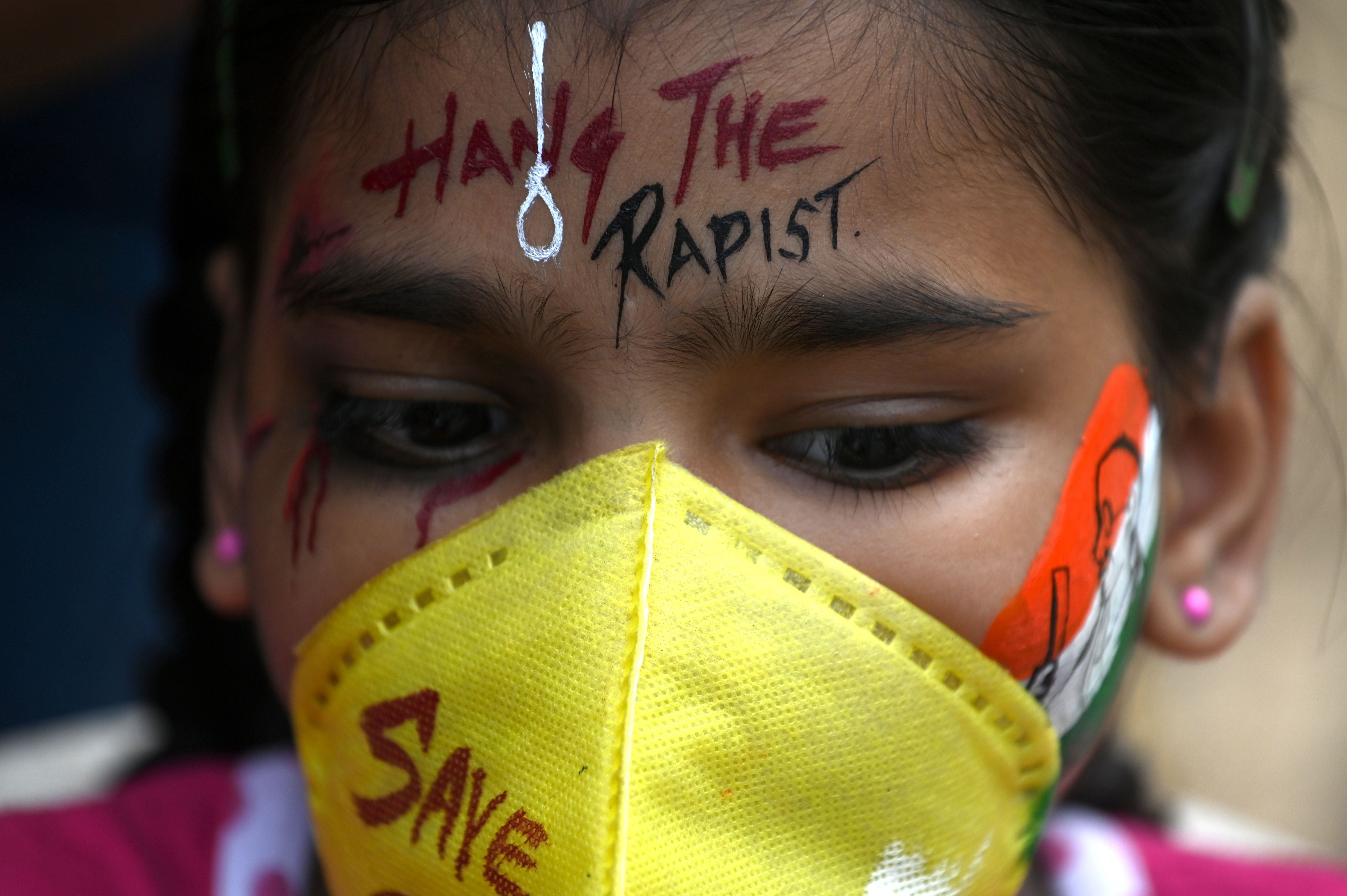Three convicted gang-rapists walk free after appealing death sentences to India’s supreme court
Delhi High Court called the men ‘predators’ who ‘were looking for prey’ upholding death sentence

Three men who were given the death penalty for raping and killing a 19-year-old woman in India’s national capital Delhi have been acquitted by the Supreme Court.
The three convicts, Ravi Kumar, Rahul and Vinod, were handed death sentences in 2014 by the Delhi High Court, with the judge calling them “predators” who roamed the streets “looking for prey” on the night they gang-raped, tortured and murdered a teenager in 2012.
It is the second time in a matter of a few months that Indian courts have made national headlines for setting free convicted gang-rapists. On 15 August this year, 11 men who were serving life sentences for the rape and murder on Bilkis Bano, seen as one of the best-known and most heinous crimes in India’s recent history, walked free after the federal government approved their premature release, sparking outrage.
On Monday, the Chief Justice of India UU Lalit and Justices S Ravindra Bhat and Bela M Trivedi cancelled the high court ruling after the convicts challenged their sentences, reported NDTV.
In February 2012, a 19-year-old women’s body was found mutilated and burnt in a field in Haryana’s Rewari district. The woman was abducted by the men and her autopsy report showed severe wounds, suggesting she was hit with car tools and earthen pots before her death.
The three men abducted the woman, an immigrant from Pauri Garhwal in Uttarakhand, as she was returning from work in Gurgaon’s Cyber City. She was taken to Haryana’s Rodhai village, some 30km away from Delhi, where she was raped and killed.
Two years later in February 2014, a Delhi court sentenced the three men to death after finding them guilty of kidnapping, rape and murder and in August of that year the Delhi High Court confirmed the death penalty.
Delhi police opposed the reduction of the convicted men’s death sentence, citing the heinous nature of the crime and said the crime was not committed only against the girl, but against society.
The lawyers for the convicts argued against the death penalty citing the three convicts’ age, their family backgrounds and past criminal record.
The parents of the girl have expressed shock and dismay over the ruling, saying they were “broken” by the decision. They said they would continue their legal fight.
“We came here for justice. This is a blind justice system,” the family said, adding they feared they could now face threats from the freed convicts, who might try to obstruct their legal battle.
The case in question occurred a few months before what is now known as the Nirbhaya case, the brutal gang rape of a girl on a moving Delhi bus that rocked the entire nation, sparking country-wide protests and several changes to the law. The four accused were hanged in 2020 after they were tried through newly-established ”fast-track” courts.






Join our commenting forum
Join thought-provoking conversations, follow other Independent readers and see their replies
Comments